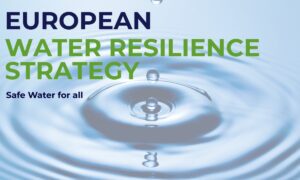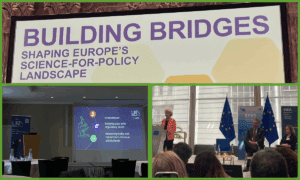Cristina de Avila, head of sustainable chemicals at the European Commission’s Directorate General for Environment, and a delegation from the European Chemicals Agency, headed by Director of Risk Management Peter van der Zandt was invited to ENVI’s meeting. The former briefly contextualised the debate, explaining that the Parliament objected to a Commission proposal on recycling PVC, as it contained a derogation on lead content. She reassured the Parliament that the Commission is committed to a clean circular economy, hence it mandated ECHA to carry out a risk assessment on the substance.
Peter van der Zandt briefed the attendees on the key findings in the report. He began with clarifying that ECHA is creating scientific reports which may contain recommendations, however they do not count as policy proposals, to lower political pressure on the agency – which resulted in more questions directed towards the Commission in the discussion ensuing later. Continuing with the presentation, after briefly describing the methodology and the scope of reviewed literature, he concluded that risks are controlled related to PVC resin during production due to the monitored environment, however PVC in the environment may contribute to microparticle pollution – although this issue is not limited to PVC. In addition, rigid PVC was identified as of lower concern than soft PVC. In the second part of the report, he followed up on additives. The impact assessment showed that replacing all PVC materials would incur significant costs, however alternative, more sustainable additives are available for a lower cost.
Amongst the numerous comments made by the MEPs, Maria Spyraki thanked for ECHA’s efforts, and called for the Commission to continue its initiatives to protect citizens and environment, however MEP Tiemo Wölken criticised that only a limited amount of additives were assessed. MEP Jutta Paullus, and Anja Hazekamp called for a heavier policy push towards the alternatives of lower concern, while the former also asked about whether the health costs were included in the cost calculations of ECHA, implying that she wouldn’t be against replacing PVC altogether. In addition, numerous MEP-s asked about the Commission’s actions following the report, in response to which, Commission representatives confirmed that they will take the recommendations into account, and presented a rough outline. They promised a final discussion on further actions by September 2024, and addressing PVCs in flame retardants by 2025.



